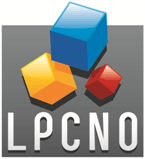SELECTIVE HYDROGENATION OF ORGANIC MOLECULES BY NICKEL NANOPARTICLES
NANOSCIENCE

Lab: LPCNO
Duration: NanoX master Internship (8 months part-time in-lab immersion)
Latest starting date: 02/01/2025
Localisation: Lab name LPCNO and LCC
Postal address : 135 avenue de Rangueil,
Postcode CITY - FRANCE
Supervisors:
katerina SOULANTIKA ksoulant@insa-toulouse.fr
Philippe SERP philippe.serp@ensiacet.fr
Work package:
Abstract / work package / illustration & legend
The goal of selective hydrogenation of organic molecules comprising different unsaturated groups is to
selectively hydrogenate only one kind of unsaturated function. It is a very challenging, industrially
relevant reaction that usually makes use of expensive noble metals such as Pt and Pd. While nickel is
a much less expensive metal, it is in general less active than the noble metals.
A way to regulate catalyst activity but also selectivity can be to create an interface between supported
metal nanoparticles (MNPs) and a specific medium with adjustable properties, such as ionic liquids
(ILs), which would allow controlling some of the key reaction parameters (metal dispersion, electron
density, metal-support interaction). Indeed, ultrathin layers of ILs supported on porous supports either
exhibit high intrinsic catalytic activity, or serve as peculiar solvents and stabilizers for an introduced
active catalyst.[1] During this Master internship we will prepare Ni nanoparticles of different shapes by
an organometallic method,[2] we will support them on solid supports (TiO2, graphene), and we will
evaluate their catalytic performance in the selective hydrogenation of various alkynes (Scheme 1),
before and after adding on the as prepared catalyst a thin layer of various ILs.

References:
References:
[1] B. V. Romanovsky, I. G. Tarkhanova. Supported ionic liquids in catalysis. Russ. Chem. Rev. 2017, 86, 444-
458.
[2] C. Amiens, B. Chaudret, D. Ciuculescu-Pradines, V. Collière, K. Fajerwerg, P. Fau, M. Kahn, A. Maisonnat, K.
Soulantica, K. Philippot. Organometallic approach for the synthesis of nanostructures. New J. Chem., 2013, 37,
3374
Areas of expertise:
Metal nanoparticle synthesis, synthesis under inert conditions, catalysis, selective
hydrogenation, ionic liquids
Required skills for the internship:
Background in chemistry and/or physical chemistry
